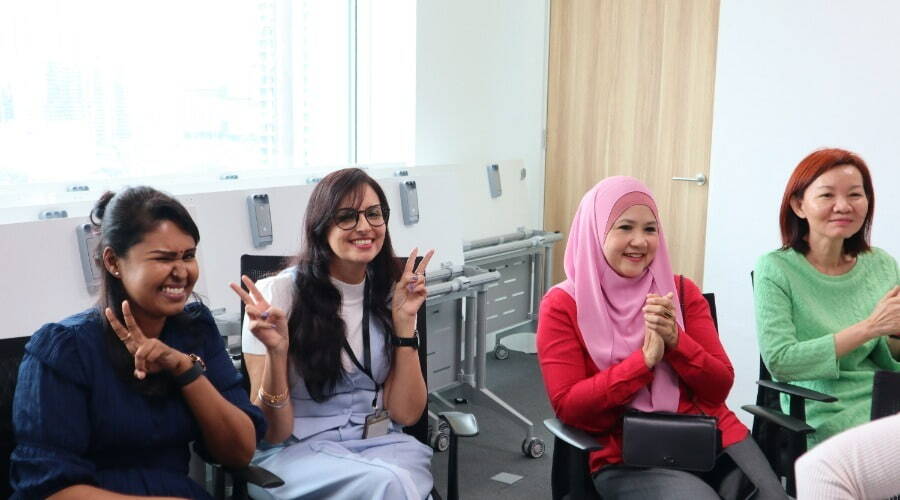Promoting Diversity, Equity, Inclusion, and Belonging (DEIB) in Malaysia
Building a DEIB (Diversity, Equity, Inclusion, and Belonging) workplace in Malaysia is not just a corporate goal but a continuous journey that requires the commitment of both employers and employees. In a rapidly globalizing world, diverse teams are increasingly common, and creating a workplace where everyone feels valued is not only morally right but also a smart business decision.
Why DEIB Matters in the Malaysian Workplace
As globalization deepens, Malaysian companies are becoming more multicultural, reflecting the diversity of race, ethnicity, religion, gender, and age that defines the country. Implementing DEIB principles helps create a more inclusive environment where all employees feel a sense of belonging and respect. Diverse teams bring a wide range of perspectives, leading to better problem-solving, more innovative ideas, and increased productivity.
In fact, a report by Jobs_that_makesense Asia and Manpower found that 77% of Southeast Asians consider a company’s reputation for social responsibility, including DEIB practices, when choosing their career paths. Additionally, 72% expect companies to promote DEIB actively to address social inequalities. These figures illustrate how DEIB initiatives are not only important for workplace harmony but also for talent acquisition and brand reputation.
4 Key Steps Employers Can Take to Foster DEIB
Develop and Enforce Non-Discrimination Policies
Biases—whether based on gender, age, or other factors—are common in many workplaces, and Malaysia is no exception. Malaysian companies should establish and strictly enforce policies that prohibit discrimination based on race, gender, ethnicity, religion, or any other protected characteristic. This sends a clear message that all employees deserve respect, from recruitment to promotion. As example, in Malaysia, we have Generational Bias where employers may assume that younger workers are less dedicated or that older workers are resistant to change. This can limit career advancement opportunities and lower job satisfaction.
Recruit and Promote Based on Merit
Recruitment processes should focus on merit by reviewing job descriptions for hidden biases and implementing blind resume reviews. Similarly, promotions should be based on clear and objective criteria, such as skills and performance. These measures help reduce biases and ensure that talent is recognized and rewarded fairly. Gender Bias is often seen in leadership roles, where men are favored for promotions, or in pay disparity, where men receive higher compensation for the same roles. Overcoming these biases requires conscious effort, fair compensation practices, and promoting women into leadership roles.
Provide DEIB Training
Discrimination often stems from unconscious biases and microaggressions. Training employees on how to identify and combat these issues can create a more inclusive workplace. Topics such as cross-cultural communication, bystander intervention, and the importance of inclusive language are crucial in fostering awareness and respect.
Support Employee Resource Groups (ERGs)
ERGs play a critical role in promoting DEIB by bringing together employees with shared experiences or interests. Employers can support these groups by providing resources for activities, meeting spaces, and communication channels. When senior leaders participate in ERG initiatives, it demonstrates a company’s genuine commitment to DEIB.
3 Tips for Employees to Ensure DEIB at Work
Communicate Effectively
Respect for different identities and experiences is essential in a DEIB-friendly workplace. Employees should practice active listening, use inclusive language, and engage in open conversations to foster understanding among colleagues.
Celebrate Diversity
Acknowledging and celebrating diverse cultures, religions, and traditions in Malaysia helps create a more inclusive environment. Employees can organize or participate in cultural events to build appreciation for their colleagues' backgrounds.
Be Visible and Authentic
Authenticity helps build connection and trust among coworkers. Sharing your background, culture, and experiences allows others to appreciate diversity, helping to normalize inclusion and fostering a sense of belonging at work.
The Impact of DEIB on Malaysian Businesses
Fostering a culture of DEIB results in numerous benefits, including increased employee satisfaction, better teamwork, and higher productivity. Moreover, it strengthens a company’s brand image, helping to attract top talent and creating a positive work culture. Organizations that prioritize DEIB are more likely to thrive in Malaysia’s competitive business landscape, as they harness the full potential of their diverse workforce.
In conclusion, the journey toward building a DEIB workplace in Malaysia requires continuous effort from both employers and employees. By working together to create an inclusive environment, businesses can reap the benefits of a happy, productive, and innovative workforce. For organizations looking to enhance their DEIB initiatives, consulting experts and leveraging available resources can pave the way for success.
